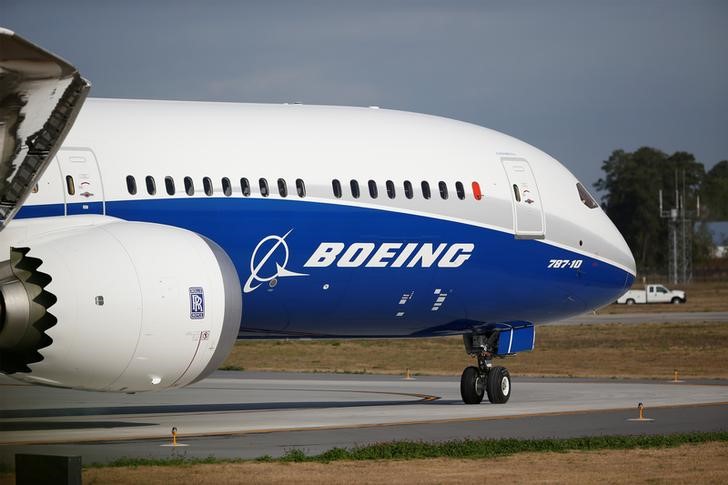Investing.com -- Boeing (NYSE:BA) is facing a potential monthly free cash flow (FCF) hit of over $1.3 billion as the IAM 751 union voted overwhelmingly to strike.
According to Jefferies analysts, the strike, which began at 12:01 AM PT, follows a 95% rejection of Boeing's proposed contract, with 96% of union members voting in favor of the strike.
The impact of the strike on Boeing will depend heavily on its duration, said Jefferies.
The firm notes that the last major strike at Boeing in 2008, which lasted 58 days, delayed more than 100 aircraft deliveries and resulted in a net income hit of $1.2 billion, roughly $600 million per month.
In 2008, the strike led to a $2.5 billion FCF hit, Jefferies pointed out, stressing the potential for significant financial disruption if the strike continues for an extended period.
The union had initially reached an agreement on a new contract in early September, which included general wage increases of 25% over the life of the contract, starting with an 11% hike in the first year.
However, union members expressed dissatisfaction, citing insufficient wage growth and the removal of an AMPP bonus, which had incentivized safety, quality, and productivity.
Jefferies explained that many workers also questioned Boeing's commitment to building a next-generation aircraft in Puget Sound, a key part of the proposal.
Jefferies warns that the current strike could be as disruptive as previous ones, but the firm also suggests that Boeing’s leadership will be highly motivated to return to negotiations quickly to minimize operational disruptions. If the strike continues, they believe the financial toll on Boeing could escalate rapidly.
